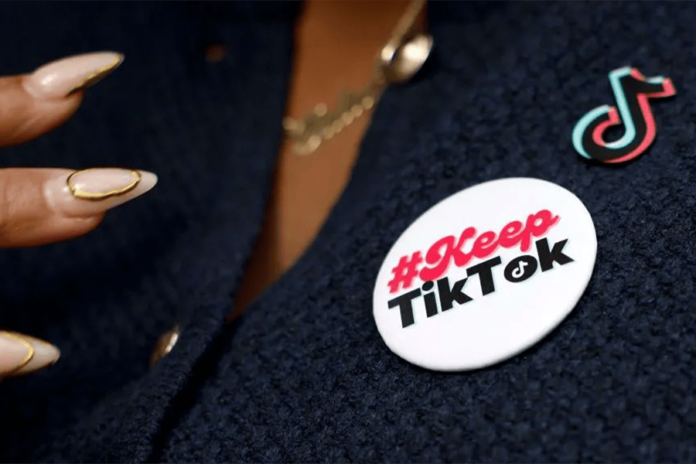The US Supreme Court has agreed to hear last-ditch legal arguments from TikTok as to why it should not be banned or sold in the US.
The US government is taking action against the app because of what it says are its links to the Chinese state – links which TikTok and its parent company ByteDance have denied.
The Supreme Court justices did not act on a request by TikTok for an emergency injunction against the law, but will instead allow TikTok and ByteDance to make their case on 10 January – nine days before the ban is due to take effect.
Earlier in December, a federal appeals court rejected an attempt to overturn the legislation, saying it was “the culmination of extensive, bipartisan action by the Congress and by successive presidents”.
When and why could the US ban TikTok?
The Supreme Court is the highest legal authority in the US, and the decision to take on TikTok’s case is significant as it only hears 100 or so cases a year out of the more than 7,000 petitions it receives.
TikTok had previously argued that the attempt to ban it was unconstitutional because it would impact the free speech of its users in the country.
TikTok said Wednesday it was pleased with the Supreme Court’s order.
“We believe the Court will find the TikTok ban unconstitutional so the over 170 million Americans on our platform can continue to exercise their free speech rights,” a TikTok spokesperson said in a statement to the BBC.
The appeal sets up a clash between free speech and national security, according to University of Richmond law professor Carl Tobias.
“The appeals court found that national security was stronger than the First Amendment contentions. However, the Justices will scrutinize the potentially conflicting, but significant, values,” Mr Tobias said in an email.
While it is difficult to predict the outcome, Cornell professor Sarah Kreps said it would be surprising to the court to overturn the prior rulings and go against the wills of both congress and the White House.
“The case has already gone through the executive branch, the legislative branch, and the lower court, all of which upheld the argument that TikTok’s ownership by China-based ByteDance poses a national security risk,” Dr Kreps said.
Will Trump intervene?
TikTok’s future does not just hang on the legal process, however – Donald Trump’s victory in the US presidential election may also hand it a lifeline.
He met TikTok boss Shou Zi Chew on Monday at his Mar-a-Lago estate in Florida, the BBC’s US partner CBS News reported, citing sources familiar with the meeting.
Trump has publicly said he opposes the ban, despite supporting one in his first term as president.
But he will not take office until 20 January, the day after the deadline for TikTok to be banned or sold.
“I have a warm spot in my heart for TikTok, because I won youth by 34 points,” he claimed at a press conference on Monday – though a majority of 18 to 29-year-olds backed his opponent Kamala Harris.
“There are those that say that TikTok has something to do with that,” he said.
But despite Trump’s support, senior Senate Republican, Mitch McConnell, urged the Supreme Court to reject TikTok’s bid.
In a brief filed to the court, he called the firm’s arguments “meritless and unsound.”
TikTok has the backing of some civil liberties organisations however.
A group of them have made a joint filing to the court urging it to block the banning of a platform which they argue “millions use every day to communicate, learn about the world, and express themselves.”
Kelsey Chickering from market research firm Forrester said Instagram’s parent company Meta would be a major beneficiary of ban on TikTok.
“TikTok is central to a thriving creator economy, and a ban would effectively create a Meta monopoly on short-form video,” Ms Chickering said, citing a Forrester survey that found 56% of TikTok users would switch to Instagram Reels in that event.
By Tom Gerken & Lily Jamali from CNN

